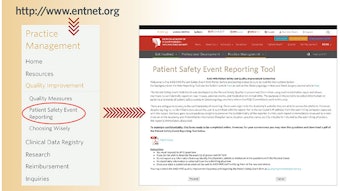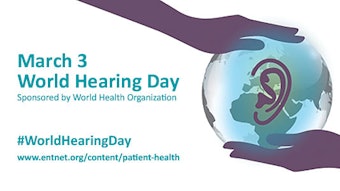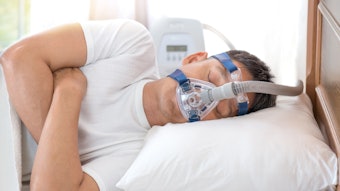Otolaryngologists help celebrate Sleep Awareness Week
Otolaryngologists are uniquely qualified to diagnose and treat sleep disordered breathing. While other health professionals are often involved in the management of these disorders, no other professionals have such comprehensive expertise and ability to offer the breadth of treatment options to improve patient lives that we do.
Sleep Awareness Week: March 11 – 17, 2018
For the Sleep Disorders and Media and PR Committees
Otolaryngologists are uniquely qualified to diagnose and treat sleep disordered breathing. While other health professionals are often involved in the management of these disorders, no other professionals have such comprehensive expertise and ability to offer the breadth of treatment options to improve patient lives that we do.

Sleep Awareness Week is March 11-17, 2018. This annual event, created by the National Sleep Foundation, seeks to promote better sleep as a way to increase overall health and well-being. As physicians, we know that sleep deprivation is associated with significant and wide-ranging morbidity. Highlighting the vital role that sleep plays in human health—and the fact that a high percentage of Americans don’t meet their body’s need for sleep—Sleep Awareness Week is of particular relevance to otolaryngologists. Sleep disordered breathing is one of the most common sleep disorders and may in fact account for more sleep loss than any other sleep disorder. Snoring and sleep apnea deprive not only the patient of necessary sleep, but also the patient’s bed-partner.
AAO-HNS to participate in FDA workshop on sleep devices
On April 16, 2018, the U.S. Food and Drug Administration (FDA) will convene a public workshop at its Silver Spring, MD, campus regarding the regulation of medical devices for sleep disordered breathing (SDB).
While “simple snoring” has not been shown to have any definite health risks, it has been said that sleeping next to someone who snores results in an hour or more of lost sleep per night. Over years or decades of a relationship, that can amount to a staggering amount of sleep deprivation for a bed-partner. It’s no wonder that people in “snoring relationships” report lower marital satisfaction scores, argue more, and have less sex than non-snoring couples.
Sleep apnea, of course, has been associated with significantly increased cardiovascular risk, including an increased risk of hypertension, stroke, and heart attack. Sleep apnea is also associated with an increased risk of type 2 diabetes. Other consequences of untreated sleep apnea include depression, increased daytime sleepiness, decreased workplace productivity, and an increased risk of automobile and workplace accidents. While up to 15 percent of adults are estimated to suffer from sleep apnea, the vast majority of sleep apnea sufferers have yet to be diagnosed. Even among those who have been diagnosed, most remain untreated.
Otolaryngologists are uniquely qualified to diagnose and treat sleep disordered breathing. While other health professionals are often involved in the management of these disorders, no other professionals have such comprehensive expertise and an ability to bring so much to the table when it comes to helping patients. From administering and evaluating sleep studies to medical management of underlying allergy, reflux, obesity, etc., and from procedures that range from simple office treatments to complex surgical interventions, to devices from oral appliances to CPAP, otolaryngologists can offer patients a more comprehensive range of options than any other professional.
So how can we, as otolaryngologists, most effectively help our patients get better sleep? First, as part of your medical history intake, consider asking patients about their sleep habits, just as you would ask about alcohol and tobacco use. Speak with your patients about the value of sleep. Highlighting sleep’s importance by discussing it during office visits may help patients better appreciate and prioritize sleep. Screening patients for sleep disordered breathing (with Berlin, STOP-BANG, or other surveys) as part of new patient data collection can help identify high-risk patients. Letting patients know that there are many treatment options for sleep apnea can be helpful, too, as many patients avoid having a sleep study out of fear that CPAP will be their only solution. Display patient education materials about sleep, sleep hygiene, and selected sleep disorders in your waiting and exam rooms to help raise awareness. Educate your staff so they can be a resource and help spread the word about the importance of sleep. Sleep Awareness Week is the perfect opportunity for you to take steps to help your patients live happier, healthier, more productive lives by getting the sleep they need to be their best!










